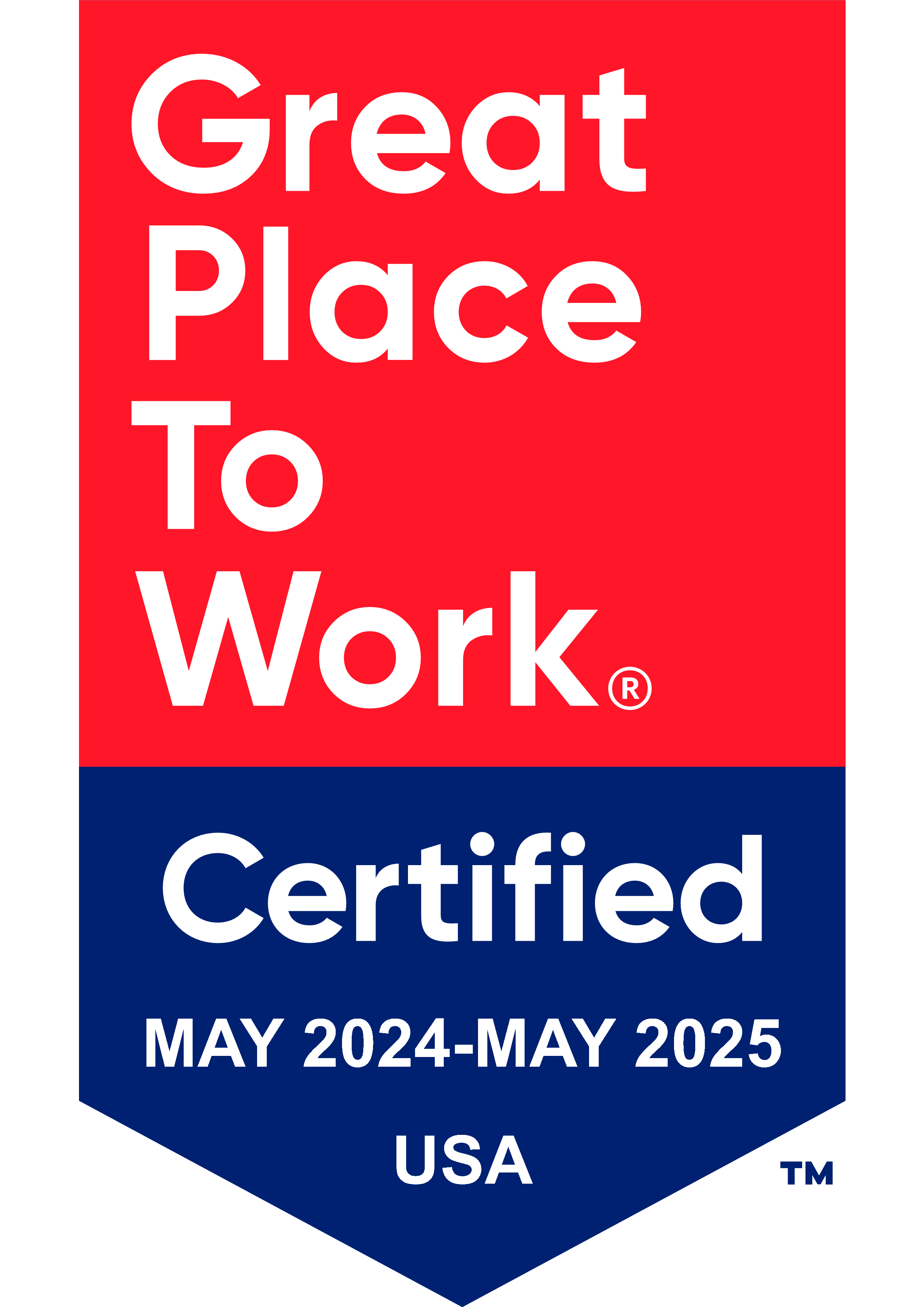With business conditions always changing, good business leadership skills are foundational for sustained success, especially in environments that are people-centric and high-energy. By strongly emphasizing entrepreneurial spirit, mentorship, and face-to-face marketing, top-tier organizations demonstrate what it means to develop and elevate leaders, those that not only drive results, but also inspire their teams to grow personally and professionally.
So, what sets great leaders apart in this kind of effective decision making, high-performance, people-first culture? Let’s break it down.
What Is Good Business Leadership?
Good business leadership involves much more than simply guiding a team to complete tasks, it’s about creating a shared vision, building trust, and driving sustainable business growth. This is done through influence, authenticity, and daily action. It involves creating a leadership presence that motivates others to perform at their highest level, not because they’re told to or they think it’s what they’re supposed to do, but because they’re inspired to.
At the heart of it, good leadership means leading by example. It’s about consistently aligning values, behaviors, and decision making skills that are in accordance with the organization’s mission. This includes setting clear goals, holding oneself accountable, and helping individuals succeed while pushing the team forward.
In companies that are people-focused and performance-driven, good leadership takes on even greater significance. Leaders are expected to:
- Take initiative and think like entrepreneurs
- Practice ownership, not just over results but also over company culture
- Build authentic, lasting relationships through face-to-face marketing
- Motivate others by focusing on what they’re good at and helping them level up
- Pave the path forward through consistency and high standards
The most effective organizations emphasize that leadership is not reserved for a select few, but rather it’s something anyone can develop through mentoring, personal discipline, and a commitment to consistent growth. Whether someone is mentoring a peer or leading a campaign, their ability to positively influence others is what defines them as a true leader.
Good leadership is, in essence, about creating momentum. It’s about moving people, ideas, and results forward with energy, clarity, and integrity.
Where management vs. leadership often contrasts task execution with visionary thinking, strong leaders can bridge this gap by conveying:
- A passion for personal growth
- A commitment to face-to-face communication that fosters connection
- A mindset that is focused on business growth through accountability and action
Strong business leadership isn’t confined to a title, it’s reflected in behavior, decision making, and the energy that leaders bring to their teams every day.
Key Traits of Good Business Leaders
Great leaders in entrepreneurial environments tend to exhibit leadership qualities that extend far beyond technical skills. These traits are keys to success in any culture of achievement.
Key characteristics include:
- Visionary thinking: Seeing long-term potential and aligning the team toward a bigger goal.
- Emotional intelligence: Reading people well, managing emotions, and handling challenges with empathy.
- Accountability: Owning results, learning from mistakes, and modeling responsibility.
- Resilience: Bouncing back from setbacks and helping others to do the same.
- Integrity: Acting consistently and ethically, regardless of the circumstances.
- Mentorship: Guiding others’ growth while simultaneously advancing their own.
These aren’t just “nice to have” characteristics, they are essential for leaders to be able to influence and inspire through personal example and consistent actions.
How Good Business Leadership Motivates and Engages Teams
In high-performing companies, team motivation starts with company culture. Leaders don’t motivate from the top down, their empowerment is done from the inside out. By embracing mentorship and fostering real relationships, they build teams that are deeply engaged and motivated to perform.
Such leadership cultures emphasize:
- One-on-one mentoring to help individuals reach their potential
- Recognizing effort, not just outcomes
- A clear path for advancement that is tied to performance and growth
- Training that is aligned with personal and leadership development goals
- Daily team huddles and personal engagement
And the result? Teams that are not only productive, but deeply connected to the mission, and to one another.
The Role of Adaptability in Good Business Leadership
Whether it’s about pivoting to market shifts or managing team dynamics, adaptability is essential to good leadership. This quality is particularly valued in environments where leaders must constantly adjust their strategies to align with new clients, products, and changing priorities.
Adaptable leaders will:
- Embrace feedback and change/learn/reflect with an open mind
- Thrive in fast-paced, people-driven situations
- Balance short-term client goals with long-term business growth
- Model flexibility through example
In a system built on initiative and responsiveness, adaptability fuels so much more than just survival, what it fuels is success.
Strategic Thinking: A Core Competency of Good Business Leaders
Strategic thinking is a leadership must-have in any successful, results-driven business. Leaders that manage campaigns or teams must make intentional choices that lead to measurable outcomes.
Strategic leaders:
- Implement outreach solutions that grow with client needs
- Position team members for growth and advancement
- Anticipate obstacles and adapt in real time
- Align marketing efforts with client goals and team strengths
The ability to take a step back, analyze the situation, and execute with clarity is important to long-term leadership success.
Decision-Making Styles of Good Business Leaders
High-energy business environments require their leaders to balance decisiveness and collaboration, depending on the situation. Because campaigns often operate independently, leaders must rely on their quick and smart decision-making skills.
Great leaders flex their style depending on the circumstance:
- For urgent matters, they must make quick decisions
- When team strategy is being developed, collaborative decisions work well
- They offer wisdom and guidance during times of mentoring, allowing others to learn by doing
- Always putting integrity and team welfare first by making values-based decisions
By blending these styles at the appropriate times, future leaders and independent thinkers are readily cultivated.
The Importance of Accountability and Transparency in Leadership
Where performance-oriented cultures are concerned, accountability and transparency aren’t optional, in fact, they’re integral. Leaders who take ownership of their results and lead with clarity earn the respect and trust of their teams.
Top leaders embrace:
- Setting daily goals and tracking with their teams
- Publicly acknowledging wins and learning moments
- Openly communicating expectations and responsibilities
- Encouraging feedback loops to foster mutual growth
These practices build a culture where everyone knows what’s expected of them, as well as how they’re progressing.
Good Business Leadership and Its Impact on Company Performance
The continued expansion of organizations like Smart Circle is a testament to the power of strong, scalable business leadership. The ripple effect that good leadership has on company performance is reflected in retention, revenue growth, client satisfaction, and team development.
What happens when leaders embody core values?
- Teams stay energized and aligned
- Company culture stays strong even as the business scales
- Results become not only predictable, but repeatable
- New leaders naturally emerge from within, ensuring continuity
Performance-driven cultures depend on leadership that isn’t just effective, but inspiring.
Leadership Development: How to Cultivate Good Business Leadership
Strong organizations know that it isn’t just about finding great leaders; they’re actually homegrown. With an emphasis on mentoring, training, and growth-from-within, successful companies provide a clear roadmap for leadership development.
Tools that support leadership cultivation include:
- A hands-on mentoring model with daily coaching
- Real-time performance management feedback
- Leadership boot camps and training workshops
- Opportunities for individuals to lead projects and meetings
- Cross-functional exposure through rotating campaign tasks
By rewarding consistency, effort, and a willingness to grow, leadership development becomes part of the everyday experience.
5 Best Practices for Developing Leaders
- Mentorship first – New hires are paired with experienced mentors from Day 1.
- Teach through experience – Real-world, on the spot challenges accelerate learning.
- Model daily consistency – Learning that good habits matter more than motivation.
- Recognize progress publicly – Wins are shared with others to inspire.
- Promote from within – Leadership is earned through proven performance.
What Sets Great Business Leaders Apart?
While great leaders are great at business, they are also great with people. What separates the best from the rest is how they live their company’s values every day.
These individuals:
- Practice visionary thinking while staying grounded in the goals of the day
- Lead through service, leaving their ego behind
- Use their emotional intelligence to build authentic relationships
- Hold themselves and others to the highest standards of accountability
- Mentor with purpose, developing the company leaders of tomorrow
- Push for excellence while fostering a human, collaborative, and energetic culture
Great leaders don’t just delegate and work on campaigns. They collaborate and help others to improve, learn, and work with one another effectively. They aren’t just growing campaigns, they’re growing people. And that’s the heart of good business leadership.
In company environments where high standards meet high energy, good business leadership means being much more than a manager, it means being a mentor, a motivator, and a strategist. Through a unique blend of leadership training, first-hand experience, and values-based guidance, organizations like Smart Circle continue to develop leaders who make a difference in their teams, their communities, and in the marketplace.





